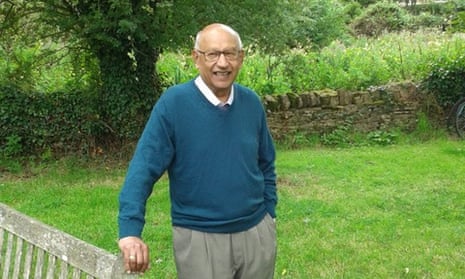Burjor Avari, who has died aged 80, was a teacher, historian and champion of multiculturalism. Over the 60 years that he and I were friends, our paths criss-crossed, often running in parallel lines, in India, Kenya and the UK. We both started our careers as teachers in Mombasa, Kenya, and ended up as academics in Manchester.
He was born to Jal and Jer Avari, in Navsari, Gujarat, India, and moved at the age of three with his family to Mombasa, where his father had taken a job in the port. His upbringing in East Africa gave him a strong commitment to forging links with people of African descent, and his Zoroastrian Parsee background helped him to have a footing in several cultures.
He moved to the UK in 1955 to take A-levels in Portsmouth before studying history at Manchester University. After teaching training at Oxford, he taught history in secondary schools, first in Kenya, from 1962, and then in Manchester.
While a teacher, he wrote a paper for the Department of Education recommending a more multicultural syllabus for history and geography in the school curriculum. In the late 1980s he and I delivered race relations courses for the police and teachers in Greater Manchester and London.
Soon we each began writing for a wider audience, with Burjor producing the outstanding books India: The Ancient Past (2007) and Islamic Civilization in South Asia (2013), which came from his years of teaching Indian history – his passion – at the Manchester Metropolitan University (MMU) from 1988 to 2003. We also co-edited several volumes, including Interwoven World (2016).
A restless spirit at times, Burjor was at his best when thinking, writing (including letters to the Guardian) and debating. He left his mark on multiculturalism in the north-west with a programme of adult evening and weekend lectures, based at MMU, which brought academics and others from Britain and beyond to talk on topics as diverse as Eastern Christianity, the influence of Indian philosophy on the Greeks, Chinese medicine, Islamic art, cricket in the Commonwealth and African history, in around 2,000 sessions over a 20-year period.
His courses rivalled anything on offer elsewhere in the UK. An unusual aspect was the depth of community involvement in finding speakers. His passion for his mission led to the building of a large network of supporters from every kind of background. In 1988 he was appointed MBE.
Burjor’s unassuming nature, his courtesy and mischievous sense of humour endeared him to those he met. He is survived by his wife, Zarin, whom he married in 1971, their daughters, Rushna and Anahita, and his brothers, Noshir and Edul.
